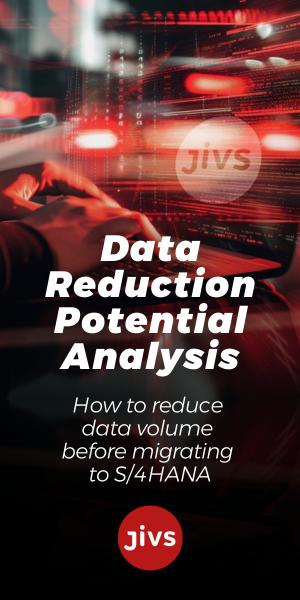Despite the ever-looming presence of an upcoming software deadline, or perhaps just the allure of shiny new tech, the move over to SAP S/4HANA or RISE with SAP sometimes isn’t the optimal business decision. In fact, there are several other ways in which an organization can remain competitive without having to rely on the latest-and-greatest.
ERP Today picked the brains of Rimini Street’s senior director of product marketing, Scott Hays, and Luiz Mariotto, GVP of SAP product management to discuss the risks with migrating over to newer systems and the options available for organizations that might not be quite ready for S/4HANA or RISE with SAP.
The first step to figuring out if an organization is ready to move forward with a new release is to determine the exact deadline date for software obsoletion. Those still running on SAP ECC versions 0-5, for example, will need a plan in place to prepare for SAP to stop supporting the software in 2025, with no more extensions provided. The organizations still operating with SAP ECC versions 6-8 have two more years to work out a business plan, with maintenance extended until 2030.
“S/4HANA has a one year cycle – every year you have a new version, with some versions already being supported for five years,” Mariotto said. “It’s put some S/4HANA clients in a very weird situation. We have several clients that implemented S/4HANA or upgraded from ECC to S/4HANA and they are out of support already.” Mariotto refers to the older versions of S/4HANA that have already stopped being supported.
Where Rimini Street can help in situations like this is to provide the third-party support to maintain older legacy systems that are no longer maintained by the original service providers. “With our clients,” Mariotto explained, “these [deadline] dates are irrelevant. There is support from Rimini Street for at least 15 years.”
While third-party support can indeed help maintain obsolete, yet still effective, systems, clients face another hurdle in the form of contract changes. For example, some SAP clients are being encouraged to convert existing contracts over to RISE contracts. However, before signing that dotted line, it’s integral to have a full understanding of the changes an organization faces.
The RISE with SAP transformation package comes bundled with a lot of complex technology and several different extensions, support services and cloud products to get used to. “It could be convenient for companies that don’t want to manage all these components, but it’s not necessarily good for every company,” Mariotto said. Bundled contracts have the chance to restrict a firm’s flexibility, with the potential to make macro shifts that could redefine the nature of the original contract.
On the topic of utilizing AI to enhance business processes, Hays discussed the importance of Rimini Street’s business-driven roadmap approach, compared to a vendor-driven one. “You’re innovating at the speed and discretion of the vendor and whatever use cases they decide to deliver AI for,” Hays said.
“As opposed to a business-driven roadmap, where you can use available tool skills and talent out there now; tools that go beyond the SAP environment and portfolio, tools that can help develop AI across applications. A business-driven roadmap for AI gets you maximum value from the existing investments.”
Rimini Street’s composable ERP approach means, rather than sticking to restrictive, monolithic ERP practices, an organization can customize its enterprise architecture to mirror its individual business needs. A composable ERP also means the digital overhaul won’t nearly be as extensive – overlaying AI doesn’t require a reworking of a firm’s core systems. While monolithic, vendor-driven ERP methods can restrict the use of particular technology, the composable ERP is able to utilize whatever best-in-class software is available.
It’s very easy to allow the threat of an incoming obsoletion date push a firm into making hasty, and potentially damaging, business decisions. Third-party support providers, like Rimini Street, offer alternative routes for clients to follow that aren’t dictated by a vendor’s contractual changes or technology stacks. Before jumping into the next digital overhaul for your business, it might be a good idea to investigate what alternatives are available – they could end up saving you money.






